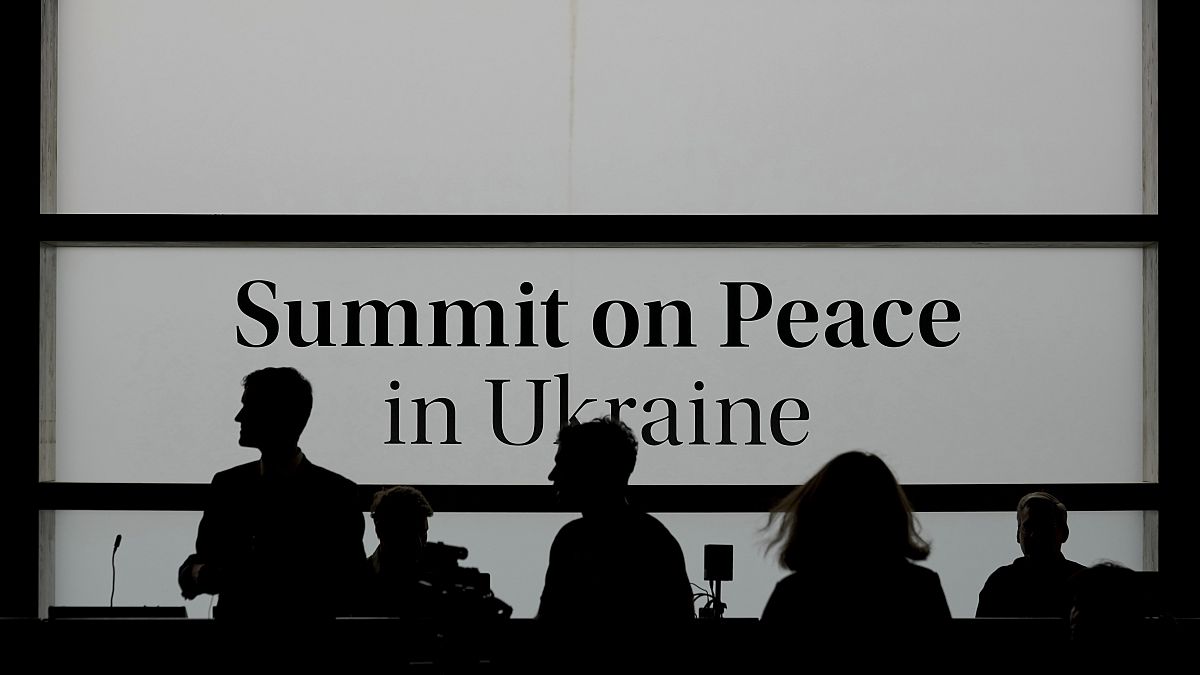The international peace summit on Ukraine, held at the Bürgenstock resort in central Switzerland, has brought together more than 90 countries and representatives of international bodies to discuss key issues facing the region. Nuclear safety is a top concern for European leaders as Russian forces still occupy the Zaporizhzhia nuclear power plant, the largest in Europe. The plant has stopped generating power for Ukraine’s national grid, and concerns about a potential accident have increased. The International Atomic Energy Agency has been monitoring the situation closely, calling for an immediate halt to reckless attacks that compromise nuclear safety.
Food security is another critical issue in Ukraine following Russia’s invasion, which has disrupted the country’s agriculture sector. Ukraine, known as the ‘breadbasket of Europe’, is a top grain exporter globally, but supply lines have been severely impacted. Russia’s occupation of Crimea and its control over the Black Sea fleet have further complicated the situation, affecting supply routes through the Bosphorus and out into the Mediterranean. Last year, a deal brokered by Turkey and the United Nations allowed for the safe export of Ukrainian grain through Black Sea ports, but it collapsed due to disputes over export terms.
Despite the absence of Russian representatives, Ukrainian President Volodymyr Zelensky expressed optimism about the summit, calling it a historic moment that could lead to peace. While experts and critics remain skeptical about any major breakthroughs, Zelensky emphasized the importance of joint efforts in stopping the war and achieving a just peace. Meanwhile, Russian President Vladimir Putin outlined his conditions for ending the war, including Ukraine dropping its bid to join NATO and withdrawing troops from regions illegally annexed by Moscow in 2022. However, Kyiv dismissed Putin’s demands as manipulative and absurd, highlighting the challenges of negotiating from a position of strength.
The ongoing conflict in Ukraine has had far-reaching consequences, with significant damage to the agriculture sector estimated at $40.2 billion. Various stakeholders, including the European Union, the Kyiv School of Economics, the United Nations, and the World Bank are working to address the growing food insecurity and rebuild the agricultural infrastructure. Intermittent fighting around key facilities such as the Zaporizhzhia nuclear power plant continues to pose risks to the region’s stability, underscoring the urgent need for international cooperation and assistance in resolving the crisis.
As working groups discuss nuclear safety, food security, and humanitarian assistance at the summit, the international community remains focused on finding practical solutions to address the pressing challenges facing Ukraine. With tensions still high and major breakthroughs unlikely in the absence of Russian representatives, the summit serves as a crucial forum for diplomatic efforts to promote dialogue and peaceful resolutions. The collective efforts of participating countries and organizations will be essential in laying the groundwork for sustainable peace and stability in the region, emphasizing the importance of continued commitment and engagement in supporting Ukraine’s recovery and rebuilding process.











